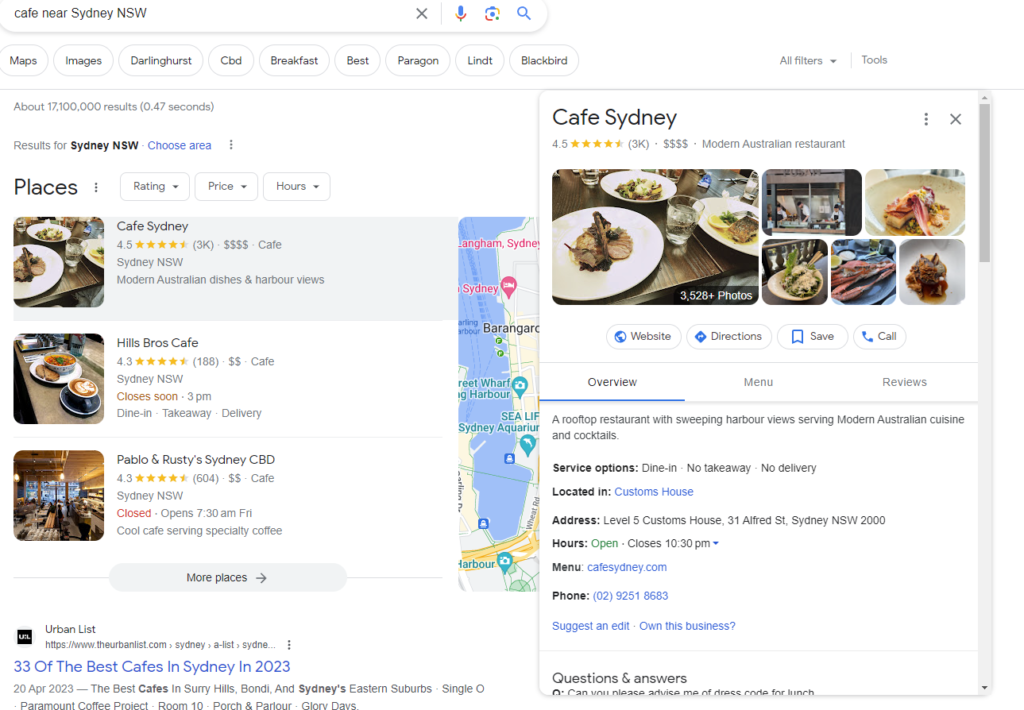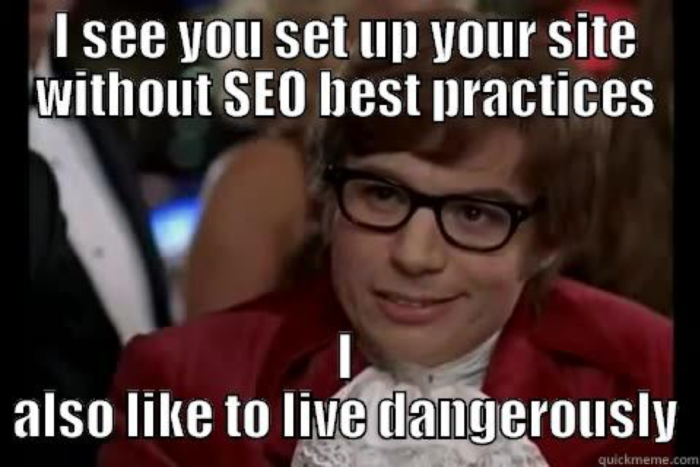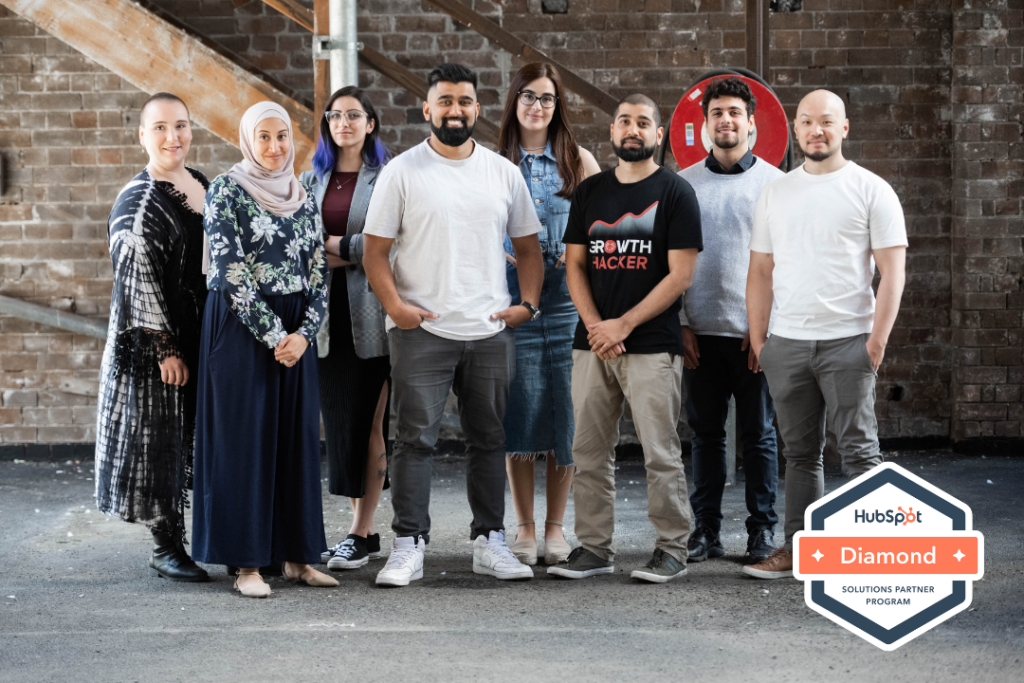According to Google, 76% of people who conduct a local search on their smartphone visit a business within 24 hours, and 28% of those searches result in a purchase. If you’re a small business owner, a marketing manager, or someone interested in digital marketing, that’s a figure you can’t ignore. And if your business isn’t showing up in those local search results, you might feel like you’re missing out on a wealth of potential customers.
I understand.
SEO can feel like a foreign language, especially when terms like “local SEO” are thrown into the mix.
But here’s the good news: Local SEO isn’t as complicated as it seems, and with the right guidance, it can be a powerful tool to propel your business’s visibility in your local area.
You’re not alone in feeling overwhelmed or confused – I’ve been there too. As a Content Manager, my skills are predominantly focused on writing, strategising and organising content.
Because my skillset sits more on the creative side, SEO can be hard for me to get my head around. And that was certainly the case in the past.
However, with the right guidance and teachers around me, I’ve been able to come to understand SEO, and now I’m implementing tactics to improve traffic and ultimately the bottom line.
Now I’m going to help you cross the same metaphorical bridge that I got across.
So, buckle up, because in this blog post, I’m going to break down Local SEO for you, show you why it’s so important, and provide you with the practical steps you can take to make it work for your business.
An Overview of SEO

Search Engine Optimisation (SEO), is essentially a strategy to increase your online visibility. At its core, it enhances your digital presence to improve your website’s ranking in search engine results.
Imagine the internet as a vast library and search engines as its librarians. When a user enters a query, these ‘librarians’ sift through billions of pages to present the most relevant and high-quality information.
SEO is a way of ensuring these ‘librarians’ not only find your ‘book’ (website) but also deem it valuable enough to recommend to library visitors (internet users).
SEO involves a mix of technical elements and content strategies to make your website more attractive to search engines.
Content is at the heart of SEO. By developing helpful and relevant website content, you’re essentially signaling to the search engines that your website is a relevant source of information for your buyers.
However, SEO is not just about content. It’s also about enhancing the user experience on your site, building credibility through quality backlinks (links from other reputable sites to yours), and much more. For a full overview of what SEO entails, check out part three on our guide to improving SEO.
General SEO vs Local SEO
While general SEO focuses on improving your website’s visibility on a global scale, Local SEO has a more specific aim: to optimise your online presence for a local audience.
Gone are the days when people relied on a printed phone directory to find a local restaurant, salon, or store. People now turn to their smartphones and Google the information they need. This behavioral change underscores the critical importance of Local SEO.
If you’re a brick-and-mortar business or a service provider operating in a specific geographical area, your success doesn’t hinge on attracting a global audience, but rather on reaching potential customers in your locality. This is precisely where Local SEO comes in.
Below is an example of what a search result looks like when Local SEO is in action.

If you click on one of the search options that appear, it opens up with a bunch of information as you can see below (known as a My Google Business Listing).

On the other hand, below is what an organic search result looks like. These search results aren’t based on geographical area and don’t show Google My Business Listings like above.

The end goal of Local SEO is the same as general SEO: to increase your online visibility. However, with Local SEO, that visibility is concentrated in the geographical area most crucial to your business. It’s the difference between being a small fish in a big pond and the big fish in a small, but highly relevant, pond.
The key difference between general SEO and Local SEO lies in the ‘intent’ of specific search queries.
Consider a user typing in ‘coffee shop’.
A search engine, like Google, recognises that the user is likely looking for a local business. So, instead of showcasing coffee shops across the globe, it presents results that are geographically close to the user. Local SEO helps your business appear in these locally focused search results.
While both Local and general SEO share many common practices – such as keyword optimisation, high-quality content creation, and link building – Local SEO adds another layer to your strategy. It requires attention to local keywords, local business listings, online reviews, and localised content.
For instance, local keywords usually involve specific geographical locations. Instead of optimising for ‘coffee shop’, you might optimise for ‘coffee shop in Mortdale’.
Ensuring your business’s details (name, address, phone number) are consistently listed across various online directories, focusing on gathering reviews on platforms like Google My Business, Yelp, and Trip Advisor, and generating content relevant to your local community are also critical aspects of Local SEO.
The Importance of Local SEO
You’re probably well aware by now that Local SEO will help more local buyers find your business. However, the importance of Local SEO extends beyond this.
Here are some compelling reasons why Local SEO is a vital tool for your business beyond the obvious reason:
- Increased Web Traffic
- Improved Customer Experience
- Reduced ad costs
- Higher website authority
- More customer reviews
- Increased brand awareness and trust
- More localised backlinks
- Improved social signals
- Better website experience for all users
How to Implement Local SEO: Best Practices

After understanding the significance of Local SEO, you might be wondering: How can I implement it for my business?
To get you started, here are some effective strategies to boost your local online presence:
- Claim Your Google My Business (GMB) Profile: Your first step in Local SEO should be to claim your Google My Business profile. This free tool from Google allows you to manage your online presence across Google, including Search and Maps. Ensure your business information is accurate and complete, as it plays a crucial role in your local rankings
- Manage Reviews and Ratings: Online reviews significantly impact your local search rankings. Encourage your satisfied customers to leave positive reviews on your GMB profile. Respond promptly and professionally to all reviews, whether positive or negative, as this demonstrates your commitment to customer satisfaction
- Optimise for Local Keywords: Conduct local keyword research to understand what your potential customers are searching for. Include these keywords in your website’s content, meta tags, headings, and URL structure to improve your visibility for local searches
- Create Localised Content: Create high-quality content that resonates with your local audience. For example, you might write blog articles around local news stories, events, or information related to your industry. Localised content not only helps in ranking for local keywords but also establishes you as an authority in your field
- Optimise for Mobile: With more and more people using mobile devices to perform local searches, it’s essential to ensure your website is mobile-friendly. A mobile-optimised website not only improves the user experience but also contributes to better search engine rankings. The best way to do a quick check if your website is mobile optimised is to open up your website on a mobile device and navigate through it. If you find that it is clunky or hard to use (even in particular sections) this probably means your website isn’t optimisd for mobile
If you’re having trouble seeing improvements in your SEO despite already following the points above, check out our guide on the 20 things you can do to improve your SEO even when nothing else is working.
Remember, Local SEO is not a one-time task but an ongoing effort. You’ll need to regularly monitor your results and shift things as needed.
Common Mistakes in Local SEO
While Local SEO can be highly rewarding for your business, there are some pitfalls that can negatively impact your efforts. Some of these include:
- Inaccurate or Inconsistent NAP Information: One of the most common mistakes businesses make is providing inaccurate or inconsistent Name, Address, and Phone Number (NAP) information across different platforms. This inconsistency can confuse search engines and hurt your rankings. Make sure your NAP information is accurate and consistent wherever it appears
- Neglecting Reviews and Ratings: Ignoring reviews and ratings can harm your Local SEO efforts. Reviews not only influence your rankings but also impact your online reputation. Ensure you are actively seeking reviews and responding to them, both positive and negative
- Overlooking Local Content: Businesses often neglect the power of local content. Creating localised content can help you connect better with your local audience and increase your visibility in local search results
- Keyword Stuffing: While it’s important to include local keywords in your content, overdoing it can lead to penalties. Search engines prefer natural, user-friendly content. Make sure your keywords are integrated naturally and provide value to your readers
- Not Utilising Google My Business to Its Full Potential: Failing to fully optimise your Google My Business profile can be a missed opportunity. Make sure to use all the features GMB offers, like posts, booking features, Q&As, and more
By being aware of these common mistakes and taking steps to avoid them, you can greatly enhance your Local SEO efforts and make your business more visible to your local audience.
What Type of Businesses Can Benefit from Local SEO?
You’re probably thinking, ‘Ok, I understand Local SEO and why it’s important, and I have a general idea of how to implement it and what to avoid. But what results can I expect? What businesses have already seen success from Local SEO?’
The types of businesses that can benefit most from Local SEO include:
- Bars and restaurants
- Law offices
- Local contractors
- Plumbers
- Real estate companies
- Medical service providers
- Stores and boutiques
- Hair salons
- Government agencies
- Local non-profit organisations
- Coffee shops
- Local consultants
- Manufacturers
- Local marketing agencies
- Musuems
- Auto dealers
- Photographers
- Colleges and universities
- Casinos
Keep in mind that even if your business doesn’t fall into the above list, you still will benefit from Local SEO if you want people in your geographical area to discover your business.
But what sort of results can you expect with Local SEO?
Below are some examples of Local SEO success we’ve achieved with our clients:
| Client | Website | Region | Keyword | Ranking (June’23) |
| Preston Hire | prestonhire.co.nz | New Zealand | spider crane hire auckland | 1 |
| Preston Hire | prestonhire.co.nz | New Zealand | spider crane hire christchurch | 1 |
| Super Service | sservice.com.au | Australia | mobile excavator repairs melbourne | 3 |
| Super Service | sservice.com.au | Australia | mobile excavator repairs sydney | 2 |
Now let’s look at an example of how Local SEO has impacted local map searches (which means users discovering the business by searching on their Google Maps app):
| Client | Website | Listing | Address | Discovery Searches (Jun’22-Nov’22) | Discovery Searches (Dec’22-May’23) | Increased Searches |
| Preston Hire | prestonhire.co.nz | Listing | Preston Hire – 31 Patiki Rd, Avondale, Auckland 1026, New Zealand | 8889 | 9631 | 742 |
In this case, our Local SEO efforts for Preston Hire resulted in an increase of 742 discovery searches on Google Maps and Google Search within a six-month period.
These are just some examples of how implementing effective Local SEO strategies can dramatically improve your business’s online visibility and, in turn, your bottom line.
Your business can experience similar results with the right approach and consistent efforts in Local SEO.
If you have any questions on how you can achieve the same for your business, get in touch with us here.
So, what’s next?
In the world of digital marketing, Local SEO plays a crucial role in connecting your business with the local community. Understanding its importance and how to implement it effectively is the key to driving foot traffic, improving your online presence, and ultimately, growing your business.
If this feels overwhelming, don’t worry.
Just like any other skill, mastering Local SEO takes time and practice. Start with the basics and build on them as you go.
Small, consistent efforts can lead to significant results over time.
And, if you ever need expert guidance, we’re here to help. With our experience and expertise in Local SEO, we can provide you with the right tools and strategies to optimise your local search performance.
To get started, take the next step and audit your current Local SEO status. Identify what’s working and what needs improvement. From there, you can start implementing the best practices and avoiding the common mistakes we’ve discussed in this article.
Do you want an expert to audit your SEO efforts instead? Get in touch with us here to receive an audit.













